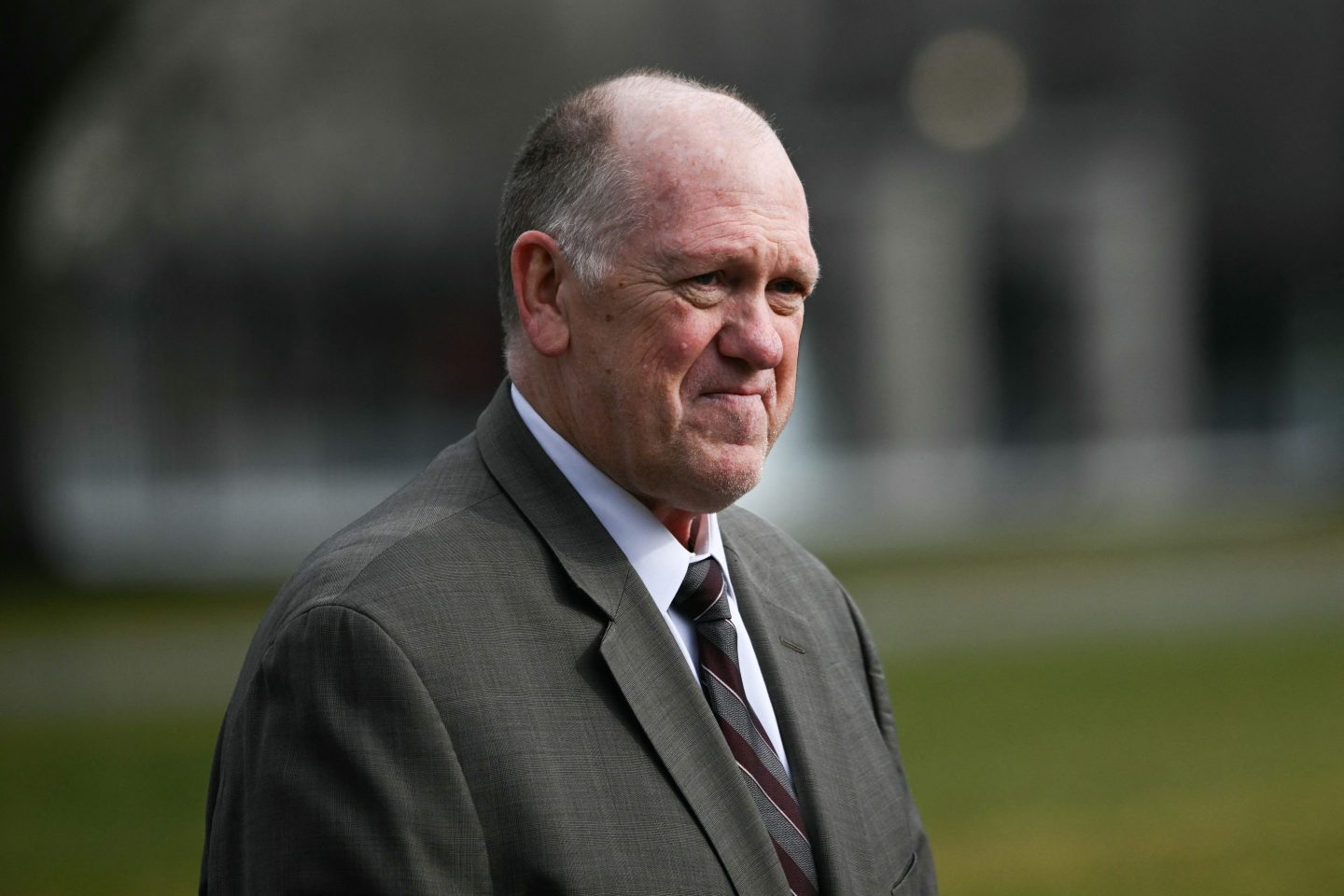Air travelers should expect worsening cancellations and delays this week even if the government shutdown ends, as the Federal Aviation Administration moves ahead with deeper cuts to flights at 40 major U.S. Airports, officials said Monday.
Day four of the flight restrictions saw airlines scrap over 2,100 flights Monday after cancelling 5,500 from Friday to Sunday. Some air traffic controllers — unpaid for more than a month — have stopped showing up, citing the added stress and need to take second jobs.
President Donald Trump pressured controllers Monday on social media to “get back to work, NOW!!!” He said he wants a $10,000 bonus for controllers who’ve stayed on the job and to dock the pay of those who didn’t.
The head of the controllers union said they’re being used as a “political pawn” in the fight over the shutdown.
Controller shortages combined with wintry weather led to four-hour delays at Chicago O’Hare International Airport on Monday, with the FAA warning that staffing at more than a dozen towers and control centers could cause disruptions in cities including Philadelphia, Nashville and Atlanta.
The Senate on Monday was nearing a vote to end the shutdown although it would still need to clear the House and final passage could still be days away. Transportation Secretary Sean Duffy made clear last week that flight cuts will remain until the FAA sees safety metrics improve.
Over the weekend, airlines canceled thousands of flights to comply with the order to drop 4% of flights at 40 of the nation’s busiest airports. That will rise to 6% on Tuesday and 10% by week’s end, the FAA says.
Already, travelers are growing angry.
“All of this has real negative consequences for millions of Americans, and it’s 100% unnecessary and avoidable,” said Todd Walker, whose flight from San Francisco to Washington state was canceled over the weekend, causing him to miss his mom’s 80th birthday party.
One out of every 10 flights nationwide were scratched Sunday — the fourth worst day for cancellations in almost two years, according aviation analytics firm Cirium.
The FAA expanded flight restrictions Monday, barring business jets and many private flights from using a dozen airports already under commercial flight limits.
Airports nationwide have seen intermittent delays since the shutdown began because the FAA slows air traffic when it’s short on controllers to ensure flights remain safe.
The shutdown has made controllers’ demanding jobs even more stressful, leading to fatigue and increased risks, said Nick Daniels, president of the National Air Traffic Controllers Association.
“This is the erosion of the safety margin the flying public never sees, but America relies on every single day,” the union chief said at a news conference Monday.
Some controllers can’t afford child care to be able to come to work while others are moonlighting as delivery drivers or even selling plasma to pay their bills, Daniels said. The number who are retiring or quitting is “growing by the day,” he said.
During the six weekends since the shutdown began, the average number of 30 air traffic control facilities had staffing issues. That’s almost four times the number on weekends this year before the shutdown, according to an Associated Press analysis of operations plans sent through the Air Traffic Control System Command Center system.
Tuesday will be the second missed payday for controllers and other FAA employees. It’s unclear how quickly they might be paid once the shutdown ends — it took more than two months to receive full back pay in 2019, Daniels said.
The shutdown and money worries have become regular “dinnertime conversations” for Amy Lark and her husband, both air traffic controllers in the Washington, D.C. Area.
“Yesterday, my kids asked me how long we could stay in our house,” Lark said. Still, she said controllers remain “100% committed.”
The government has struggled for years with a shortage of controllers, and Duffy said the shutdown has worsened the problem. Before the shutdown, the transportation secretary had been working to hire more controllers, speed up training and offer retention bonuses.
Duffy warned over the weekend that if the shutdown drags on, air travel may “be reduced to a trickle” by Thanksgiving week.
___
Yamat reported from Las Vegas and Funk from Omaha, Nebraska. Associated Press writers Ken Sweet, Wyatte Grantham-Philips and Michael R. Sisak in New York, Stephen Groves and Kevin Freking in Washington, and John Seewer in Toledo, Ohio, contributed to this report.












